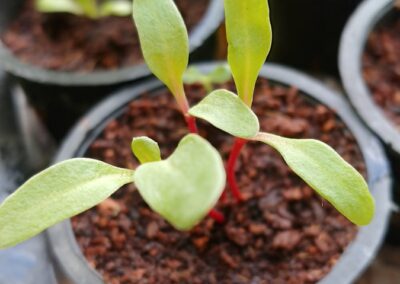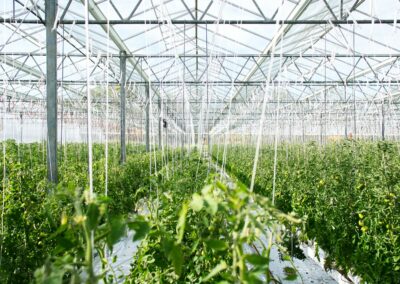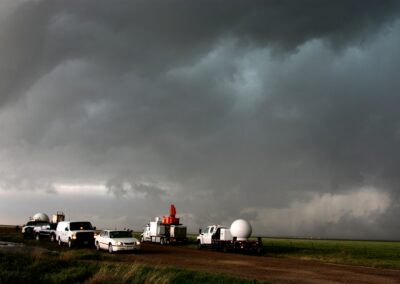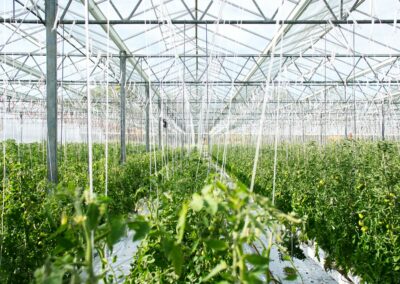Hydroponics: Safeguarding Crops in Extreme Weather
Controlled Environments for Optimal Growth
Hydroponics, a soil-free method of growing plants using nutrient-rich water solutions, offers a revolutionary approach to agriculture. By providing controlled environments, hydroponics protects crops from the adverse effects of extreme weather and climate variability. This technology is particularly beneficial in regions such as Saudi Arabia, the UAE, Riyadh, and Dubai, where harsh climatic conditions can impede traditional farming practices. With hydroponics, plants receive consistent, optimal conditions for growth, ensuring high yields and reliable food production regardless of external weather patterns.
Enhancing Crop Protection
One of the key advantages of hydroponics is its ability to shield crops from unpredictable weather events. Extreme temperatures, heavy rainfall, and prolonged droughts pose significant threats to conventional agriculture. In hydroponic systems, plants are cultivated in controlled environments where temperature, humidity, and light can be meticulously regulated. This protection not only preserves crop health but also enhances resilience to climate change. For business executives and entrepreneurs in the agriculture sector, investing in hydroponics can mitigate risks associated with climate variability and secure a stable food supply.
Sustainable Resource Management
Hydroponics is inherently resource-efficient, making it an ideal solution for regions facing water scarcity and land limitations. Traditional farming often requires large amounts of water and fertile land, which are increasingly scarce resources in the Middle East. Hydroponic systems recycle water and use up to 90% less water than soil-based agriculture. Moreover, they can be set up in urban areas, transforming unused spaces into productive farms. This sustainability aligns with the goals of Saudi Arabia’s Vision 2030 and the UAE’s commitment to sustainable development, promoting agricultural practices that conserve resources and enhance food security.
Artificial Intelligence and Precision Agriculture
The integration of Artificial Intelligence (AI) in hydroponics enhances precision agriculture, allowing for real-time monitoring and adjustments to the growing environment. AI algorithms can analyze data from sensors to optimize nutrient delivery, lighting, and climate control, ensuring that plants receive the exact conditions needed for optimal growth. This technological advancement is particularly relevant for business executives and mid-level managers in Riyadh and Dubai, where innovation drives economic success. By leveraging AI, hydroponic farms can achieve higher efficiency, reduce waste, and increase profitability.
Blockchain for Transparency and Traceability
Blockchain technology offers significant benefits for hydroponic farming by providing transparency and traceability throughout the supply chain. Consumers increasingly demand information about the origin and quality of their food. Blockchain can record every stage of the production process, from seed to harvest, ensuring that data is immutable and verifiable. This transparency builds consumer trust and opens new markets for hydroponic produce. For entrepreneurs and management consultants, incorporating blockchain into hydroponic operations enhances brand reputation and meets the growing demand for accountability in food production.
The Metaverse and Virtual Collaboration
The Metaverse, a virtual reality space, presents unique opportunities for training and collaboration in hydroponic farming. Business executives and entrepreneurs can use the Metaverse to simulate farming scenarios, explore best practices, and conduct remote training sessions. This virtual platform facilitates knowledge sharing and skill development, which are crucial for the successful implementation of hydroponic systems. In rapidly developing markets like Saudi Arabia and the UAE, the Metaverse enables continuous learning and innovation, driving business success and fostering a culture of technological advancement.
Effective Change Management
Transitioning to hydroponic farming requires effective change management to address the challenges and opportunities presented by this innovative technology. Business leaders must guide their teams through the adoption process, ensuring that everyone understands the benefits and operational requirements of hydroponics. This involves training, communication, and strategic planning. For companies in Riyadh and Dubai, effective change management ensures a smooth transition and maximizes the potential of hydroponic systems to improve productivity and sustainability.
Executive Coaching and Leadership Development
Leadership in the hydroponics industry demands a combination of technical expertise, strategic vision, and effective communication skills. Executive coaching services can help business leaders develop these competencies, enabling them to navigate the complexities of modern agriculture. In the competitive environments of Saudi Arabia and the UAE, strong leadership is essential for driving innovation and achieving business goals. Executive coaching provides leaders with the tools they need to inspire their teams, implement cutting-edge technologies, and secure long-term success.
Enhancing Communication and Collaboration
Effective communication is vital for the success of hydroponic farming operations. Business executives and managers must clearly articulate the benefits of hydroponics to stakeholders, including investors, employees, and consumers. In multicultural regions like Saudi Arabia and the UAE, where diverse teams are common, understanding and respecting cultural differences is crucial. By fostering open communication and collaboration, businesses can build strong relationships, enhance team cohesion, and ensure the successful implementation of hydroponic systems.
#Hydroponics #ClimateResilience #SustainableAgriculture #BusinessSuccess #AI #Blockchain #Metaverse #LeadershipSkills #ManagementConsulting #EffectiveCommunication #SaudiArabia #UAE #Riyadh #Dubai #ChangeManagement #ExecutiveCoaching























